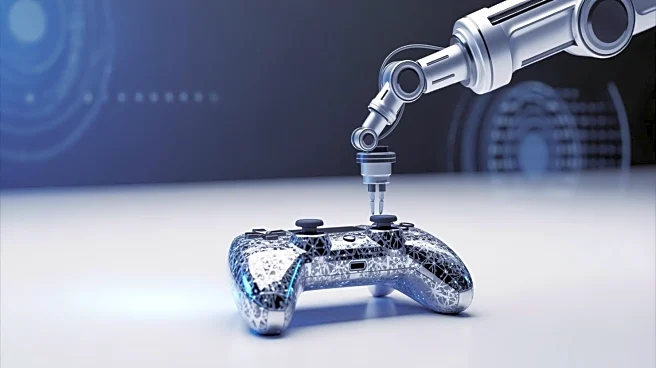What's Happening?
Square Enix has announced its intention to automate 70% of its quality assurance (QA) and debugging tasks in game development by the end of 2027. This initiative is part of a joint research effort with
the Matsuo Laboratory at the University of Tokyo, aimed at improving game development efficiency through AI technologies. The company plans to use generative AI to enhance QA operations, potentially replacing a significant portion of its existing QA workforce.
Why It's Important?
Square Enix's move towards AI-driven QA processes reflects a broader industry trend of automation in game development. By reducing reliance on human QA workers, the company aims to increase efficiency and reduce costs. However, this shift raises concerns about job displacement and the future of human labor in the gaming industry. The integration of AI in QA processes could lead to faster game development cycles and improved product quality.
What's Next?
As Square Enix progresses with its AI initiatives, the gaming industry may see increased adoption of automation tools, potentially leading to changes in workforce dynamics. The company's focus on efficiency may inspire other developers to explore similar strategies, driving innovation in game development processes. Stakeholders, including employees and industry leaders, may need to address the implications of AI-driven automation on employment and job security.
Beyond the Headlines
The ethical considerations of replacing human workers with AI in game development are significant. Ensuring fair treatment of displaced workers and addressing potential biases in AI systems will be crucial. Additionally, the impact of AI on creativity and innovation in game design may require careful evaluation as the technology becomes more integrated into development processes.










